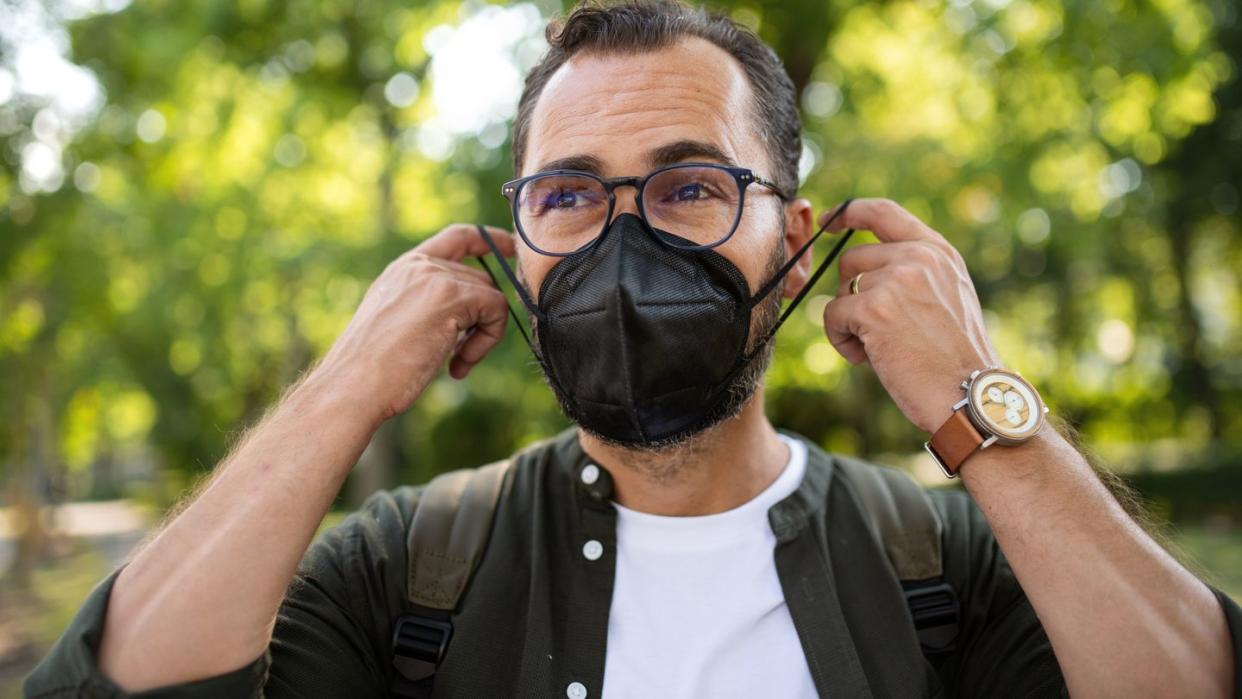How Repeat Covid Infections Can Harm Your Health

"Hearst Magazines and Yahoo may earn commission or revenue on some items through these links."
HOW MANY TIMES have you had Covid? That’s a question your doctor might ask during your next physical. Or, one that comes up when you’re rehashing the events of the past four years with friends and family.
The Centers for Disease Control and Prevention estimated that 77.5 percent of Americans have had at least one Covid infection as of the end of 2022. But, many people have contracted the virus multiple times. In a Yahoo News/YouGov poll conducted in the fall of 2023, 12 percent of adults said they’ve had Covid twice, and 3 percent said they’ve had it three times.
Doctors say there’s evidence that repeat Covid infections could increase your risk for many other health problems, including diabetes, heart conditions, gastrointestinal diseases, and long Covid. But, they’re not sure exactly why—and, there’s still a lot to learn, says Aaron Friedberg, M.D., clinical co-lead of the Post Covid Recovery Program at The Ohio State Wexner Medical Center.
“This could be due to the illness leading to differences in someone's lifestyle, such as being more sedentary due to fatigue after an illness,” he says. “It could be due to inflammation from the illness causing problems. It could be due to small blood clots caused by Covid infection, or other causes.”
A large CDC-funded study called Innovative Support for Patients with SARS-CoV-2 Infections (INSPIRE) is underway to help shed more light on why multiple Covid infections can cause long-term health issues for some people, explains Mark Loafman, M.D., M.P.H., a family physician and chair of Family and Community Medicine at Cook County Health in Chicago.
Here’s what experts know about the relationship between multiple Covid infections and long-term health problems.
How Repeat Covid Infections May Affect Your Health
Covid infections can offer some “residual immunity,” which is why second, third, and more Covid infections may be milder, Dr. Loafman says. However, that protection fades over time—and, that’s why getting vaccinated is so crucial.
“There’s a risk of complications with each infectious episode,” he explains.

Like other infectious diseases, Covid triggers an immune-mediated inflammatory response, which causes symptoms like fever, body aches, congestion, or cough, Dr. Loafman says. The severity of the response—and, the organs and bodily functions it affects—can vary depending on someone’s age, genes, and general health, including whether they have existing health conditions.
For example, people with diabetes or who have risk factors for diabetes may be more likely to develop the condition after an illness, like Covid, that causes a systemic inflammatory response, Dr. Loafman explains.
These same factors are also why Covid, especially multiple infections, is connected to other chronic conditions, he adds.
A 2022 study published in Nature Medicine analyzed more than 40,000 Department of Veterans Affairs records of people who had Covid infections and found that individuals who had two or more infections had a higher risk for diabetes and pulmonary, cardiovascular, hematological, gastrointestinal, kidney, mental health, musculoskeletal, and neurological disorders.
The research also suggested that these patients had a higher risk for death, hospitalization, long Covid, and chronic fatigue.
Do multiple Covid infections increase your risk for long Covid?
Each time you get Covid, you have a chance to develop long Covid, Dr. Friedberg says. “While these chances may be decreasing over time, we still have many new cases of long Covid occurring even four years after the start of the pandemic.”

But, he explains that experts are unsure whether a second or third Covid infection poses a different risk for long Covid than the first infection.
The best way to reduce any post-Covid health risk—whether it’s long Covid or something else—is to avoid getting the virus in the first place, Dr. Friedberg says. And, if you do get Covid, get treated with Paxlovid or another therapy to reduce your risk for severe illness.
What if you’ve only had mild Covid cases?
Your risk of health complications is usually lower if your Covid case is mild, Dr. Friedberg says. Covid cases are typically milder now than they were at the beginning of the pandemic, but there’s still a risk for health problems each time you get the virus.
“Unfortunately, unlike some other illness that can give lifelong immunity after you have them, the immunity from having Covid is very temporary,” he explains. “It’s possible to have multiple reinfections even in a single year, and while one infection may be mild, this does not mean a subsequent one will not be more severe.”
Why You Still Need to Take Covid Precautions
You’ve likely stopped masking and might not think about Covid as much as you used to, but it remains a major cause of death and disease, Dr. Friedberg says.
Still, Covid seems to have joined the ranks of other respiratory and infectious diseases, like the flu, that are here to stay, Dr. Loafman says. However, Covid isn’t necessarily following a seasonal cycle, like the flu—instead, it keeps hanging around with new variants emerging and periodic spikes happening.
So, it’s crucial to keep following all the guidelines we’ve learned over the past four years to protect yourself and others. Stay up to date on vaccines, Dr. Loafman says, and if you do get sick, wear a mask and stay away from others.
“Each infection is like taking a chance at the lottery,” Dr. Friedberg says. “The odds are a bit better than they were three years ago, but there is still a chance you could end up with serious illness, permanently disabling changes in your ability to think, breathe, or move, or die from this disease.”
You Might Also Like

